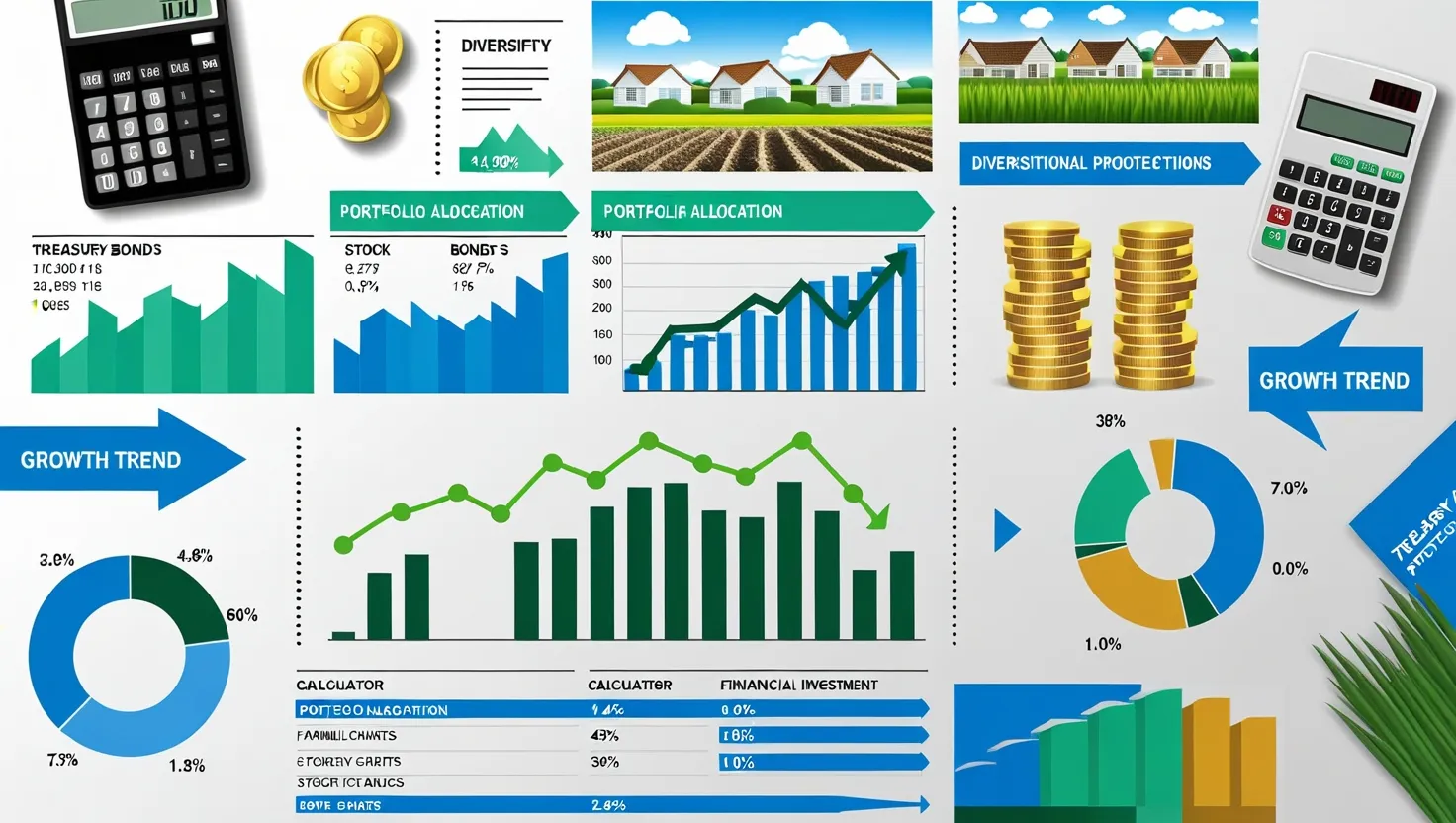5 Simple Ways to Invest in International Markets Without Currency Headaches
Discover 5 practical strategies to invest globally without currency headaches or tax complexity. Learn ADRs, hedged ETFs, and multinational stocks for simple international diversification. Start investing worldwide today.

7 Proven Retirement Withdrawal Strategies That Make Your Money Last Longer
Master retirement withdrawal strategies to make your money last. Learn 4% rule adjustments, bucket strategies, dynamic spending, and tax-efficient withdrawal orders for secure retirement income.

**5 Fintech Tools That Automate Wealth Building While You Sleep (2024 Guide)**
Discover 5 fintech tools that automate wealth building with just 5 minutes setup. From round-up apps to tax-loss harvesting - start growing your money today!

7 Smart Inflation-Proof Assets Every Investor Should Own in 2024
Learn 7 powerful inflation-fighting assets to protect your savings. Discover TIPS, REITs, dividend stocks, and more strategies to beat rising prices.

**7 Smart Credit Card Strategies That Build Real Wealth Without the Debt Trap**
Learn how to build wealth with credit cards through smart rewards strategies, sign-up bonuses, and 0% APR offers. Master disciplined spending without debt risk today.

5 Psychological Investment Biases That Destroy Your Portfolio and How to Fix Them
Discover 5 common investment biases that derail financial decisions: anchoring, loss aversion, herd mentality, confirmation bias & overconfidence. Learn proven strategies to overcome psychological pitfalls and make smarter investment choices. Start investing with logic, not emotion.

4 Proven Alternative Income Streams to Achieve Financial Independence Without Traditional Employment
Discover 4 proven alternative income streams to build financial independence: dividend investing, rental property, peer-to-peer lending & digital products. Start today!

7 Essential Value Investing Metrics for Finding Undervalued Stocks in Today's Market
Learn to spot undervalued stocks with 7 essential value investing metrics. Discover how P/E ratio, P/B ratio, and cash flow analysis can help identify hidden gems in any market. Master these practical tools to make smarter investment decisions today.

Market Corrections: 6 Key Lessons for Investors During Financial Volatility
Discover 6 timeless lessons from market corrections that can transform your investment strategy. Learn how quality assets, cash reserves, and emotional discipline create opportunity in downturns. #InvestingWisdom ChatGPT: Learn how market corrections offer valuable investment lessons. Discover strategies for managing emotions, maintaining quality assets, and leveraging downturns for opportunities. Act smarter during volatility.

15 Proven Strategies to Build a Recession-Proof Investment Portfolio
Fortify your investments against economic uncertainty with proven strategies for a recession-resistant portfolio. Learn diversification tactics, defensive sector allocation, and psychological preparation to protect your wealth during market downturns. Start building resilience today.

5 Advanced Financial Ratios for Smarter Company Analysis
Discover 5 advanced financial ratios beyond P/E that reveal a company's true performance and competitive position. Learn how to analyze profitability, debt, efficiency, and cash flow like professional investors.

6 Essential Wealth Transfer Strategies to Preserve Your Family's Financial Legacy
Discover 6 tax-efficient strategies for preserving your wealth across generations. Learn how to leverage gift exclusions, trusts, and timing to maximize your legacy while minimizing tax impact. Start planning today for tomorrow's financial security.

7 Unconventional Assets to Diversify Your Investment Portfolio Beyond Stocks and Bonds
Discover 7 unconventional investments beyond stocks and bonds. From music royalties to water rights, learn how these alternative assets can diversify your portfolio and create unique growth opportunities. Start small and think big.
